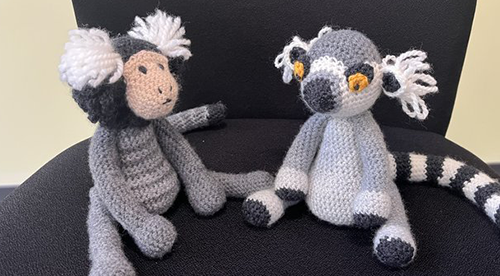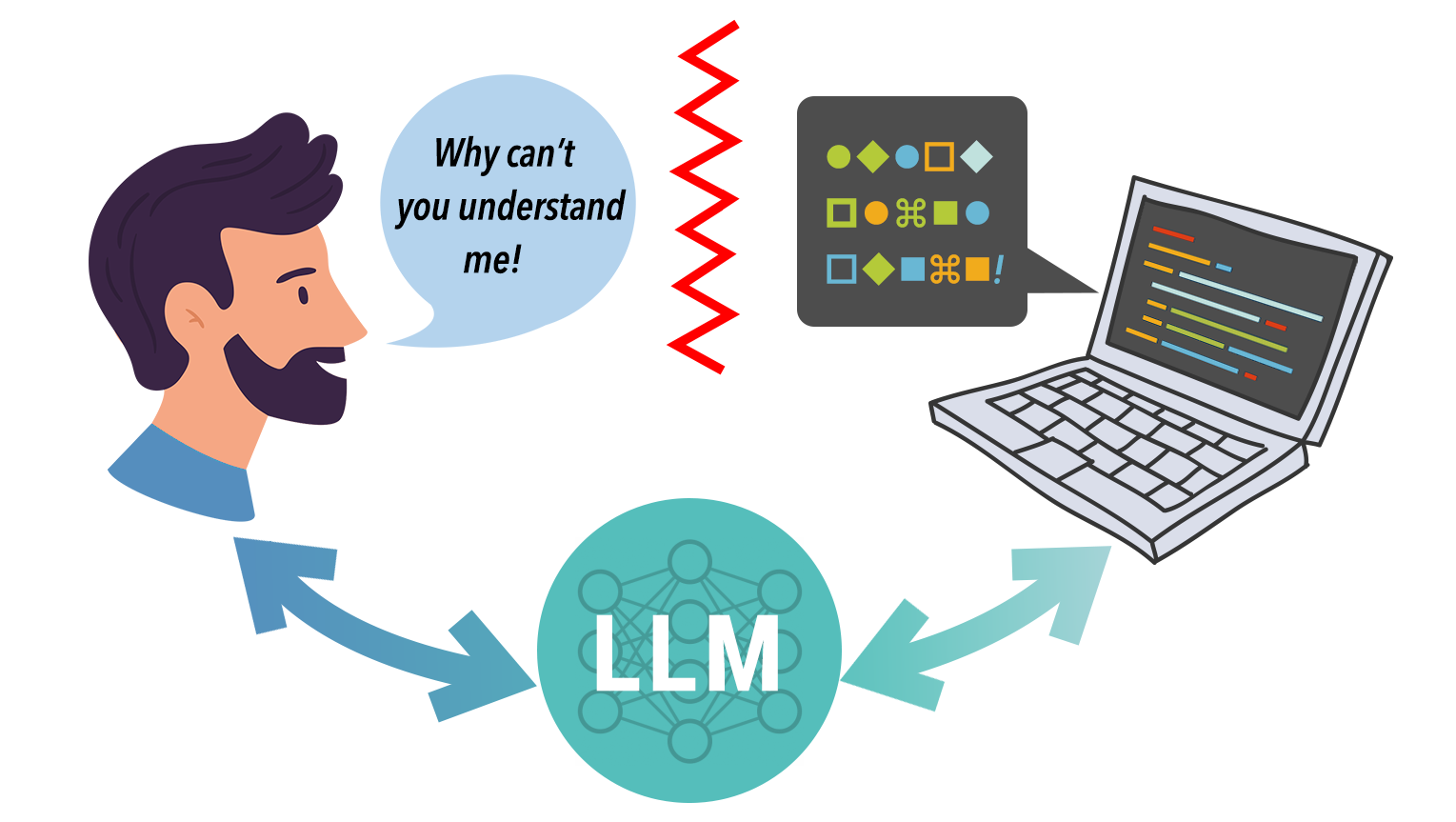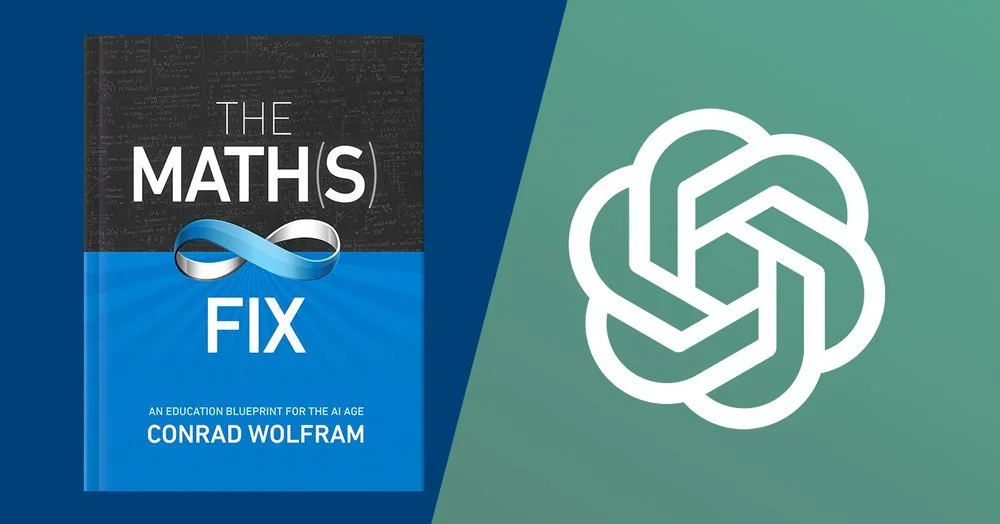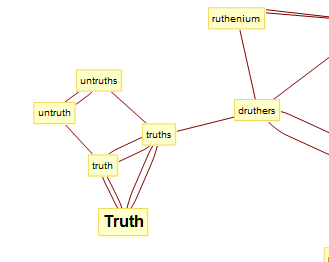So many people have asked me about the US “math wars” during my recent visit, that I thought I’d comment in a blog, rather than repeat myself over and over again. Briefing for those not in the US: there is open warfare between “reformers” and “non-reformers” of math education. The latest round is ostensibly over whether “data science” should be accepted as an alternative to traditional subjects like “algebra II” for admission to top colleges.
Read MoreEvery day people and AIs are being compared, their character—personas—and abilities.
There’s a much longer running Wolfram tradition. Comparing people with animals, sock puppets or desk toys. Which animal has the expression of which person you know? Which desk toy best represents the person sitting opposite in a meeting? Or which crocheted animal—a hobby of my daughter’s, prompted by my colleague Lianne’s vast constructed collection?
Read MoreWhat can we learn from another great revolution: electricity? Quite a bit: its emergence as a key driver for societal change, the length of time to see its full impact, and amazingly that we’re still in thick of working out applications. All, I believe, mark out a trajectory for ubiquitous computation.
Read MoreNow Computers Talk “Human”, Do Humans Need to Talk “Computer”? As with fellow humans, we often talk to computers with language. The big news for 2023 is how computers will now talk “human” as never before—so much so that they really appear as our species (no, any bots reading this…not you…). Does that mean we never need to speak “computer”, i.e. program syntactically? Will LLM technology (like ChatGPT) mean we can drop this recent, evolving form of discourse, familiar to most but used by only an elite few?
Read MoreI characterise the computational or maths process as 4 step. (If you haven’t come across this central theme of The Math(s) Fix before, here’s a quick description). And the central problem with our mainstream maths education has been the failure to recognise that step 3—compute—has been almost completely taken over by computers in real life…and that totally changes the what, when and how.
Read MoreThe byline for “The Math(s) Fix” was “An Education Blueprint for the AI age”. And I meant it. I just didn’t know that ChatGPT would so suddenly expose the need for reformation.
I have relaunched my book today, with a new foreword (for Kindle Edition) that explains “how The Math(s) Fix addresses key issues not only for the future of maths, but for AI-age education in general. This book uniquely puts the ChatGPT shock into perspective by offering the reformer's roadmap for reaction to policymakers, employers, parents, teachers, and students.”
Read MoreThe combination of ChatGPT with its Wolfram plug-in just scored 96% in a UK Maths A-level paper, the exam taken at the end of school, as a crucial metric for university entrance. (That compares to 43% for ChatGPT alone).
If this doesn’t shock you, it should. Maths A-level (like its equivalent in many other countries) is held up as the required and essential qualification
Read MoreOver the last few days, I’ve been asked how ChatGPT (particularly allied to Wolfram|Alpha) will affect education, how it relates to “computational literacy for all” and the computer-based mathematics education that my book The Math(s) Fix maps out. Actually, Wolfram is involved in Edtech in many other ways too; it will be great seeing how the full range of powerful integrations emerge that can deliver better education.
In this post, I want to zoom out to put this new technology in context hopefully to help to suggest how we might think about changes it should and shouldn’t cause.
Read MoreFor the last year, I’ve been referring to being in a .gov bubble—that a current western economic predicament has similarities to the .com bubble of 2000 alongside carry through from the 2008 bank crisis reaction too. I’m no economist, so these are layman’s comments, but in a little bit like the way “the markets” pumped money into all and sundry back around the millennium changeover, so governments have been doing likewise now. And in rather the way that private debt at very low interest rates swilled around after the dot com bubble burst, now we have never-never land government money fuelling today’s calamity.
Read MoreA few years ago I inherited the family C. Bechstein model B grand piano, built in 1921 in Berlin. I’m pleased to say, financially it’s not worth that much. Old grand pianos are surprisingly cheap and plentiful in the UK because it’s hard to fit them in many houses. And pianos have been popular for a long time now.
What marks this out for me is its family history…
Read MoreOne year ago I released my book The Math(s) Fix: An Education Blueprint for the AI Age. Today I’m excited to release The Math(s) Fix in audiobook format. Some people like to read, some to listen, but everyone is needed to fix maths, so I thought it important to add this format.
Read MoreThis is the third time in short order I’ve felt compelled to blog about a basic computational thinking educational failure shown up by the COVID-19 crisis. Today it’s the turn of using the wrong data science tools for the job. It was announced yesterday in the UK that NHS England (the body responsible for the public health service) relied on Microsoft Excel 2007 to collate the country’s COVID test data, not only for the daily case figures, but also for feeding the track and trace service too. Catastrophically, I understand it was too big for the maximum number of rows allowed so for around a week, the authorities didn’t realise 10,000s of cases didn’t show-up and they failed to trace and contact others who might have been infected.
Read MoreAnother day, another fiasco that’s pinned on the failure of algorithms to make reasonable decisions about our lives.
…
I’ve warned before that ineptitude at computational thinking (CT) is an urgent societal problem whose effects we’re increasingly feeling. But even I’m amazed that such a severe case of CT failure should emerge from the very bodies who’ve failed to introduce CT education in schools, and insisted we stuck to old-school maths instead. Rote-learning long division procedures or indeed 1930s statistics isn’t going to get you using modern multiparadigm data science to reach good decisions with computation (including if you’re a Minister, civil servant or analyst in Ofqual).
Read MoreTMF day has finally arrived. After more than 15 years of conceptualising the idea, 10 years of build-out and 2 years of writing and editing, I have assembled “The Math(s) Fix: An Education Blueprint for the AI Age” or TMF for short and thrown it out to the world today in ink and e-ink.
Read MoreMathematical modelling is at the centre of our lives as never before—invoked and presented daily to justify massive change in our way of life, livelihoods—even as giver of life or death.
It’s presented by experts not only as the best torch to pick in navigating us to the end of the COVID-19 tunnel, but the only one. It predicts the future or how we must change policy to achieve a different future.
Read MoreIt’s been a bit quiet on this website for the past year or so, but not without good reason! I'm very excited to announce my new book, The Math(s) Fix will be released this summer.
The Math(s) Fix: An Education Blueprint for the AI Age exposes why maths education is in crisis worldwide and how the only fix is a fundamentally new mainstream subject. It argues that today's maths education is not working to elevate society with modern computation, data science and AI. Instead, students are subjugated to compete with what computers do best, and lose.
Computational Thinking—The New Literacy
Our democracies face a massive challenge today. The battleground for electoral success is based on information that few are equipped to question. A small elite manages our thoughts through knowledge only they possess, to the exclusion of most citizens.
I am talking about the overriding effect of modern data science and more generally computation in our societies. Just a tiny fraction of our populations are educated in directly applying computational thinking to information, arguments and decisions they have to take. Including about government. Including about voting.
Read MoreFor once I'm not talking about the contents of school maths but the name and its associations.
The question I'm asking is if our core technical subject wasn't termed "maths" but "nicebrand" would things go better in and out of education?
Sadly, I've started to conclude the answer is yes. I now suspect that using the brand of maths is damaging core technical education, its reform, and efforts to equip society for the AI age.
Believe me, this is not the conclusion I want. I've spent years of my life somehow connected with the word "maths". But much as I might not like my conclusion, I want the essence of subject maths to succeed; so I don't want the name to kill the subject—a much worse outcome.
Read MoreListening to debates pre-Brexit, one of the most familiar cries from the British public to politicians was "we need more information, a more informed debate", implying "tell us more accurately how our vote will play out, you must know!" but then when trends or figures were presented "you can't believe any expert".
Unpacking these sentiments is enlightening. Effectively the clamour was for a detailed model and computation of what leaving the EU versus staying in might mean, particularly in practical financial ways like affordability of housing.
The fact is, no-one knows, even approximately. In practice you can't predict it. The ecosystem is too complex, with huge numbers of feedback loops and linked components, many of which even individually are almost unknowable.
Read MoreThere is a lot of talk of "Computational Thinking" as a new imperative of education, so I wanted to address a few questions that keep coming up about it. What is it? Is it important? How does it relate to today's school subjects? Is Computer-Based Maths (CBM) a Computational Thinking curriculum?
Firstly, I've got to say, I really like the term.
To my mind, the overriding purpose of education is "to enrich life" (yours, your society's, not just in "riches" but in meaning) and different ways in which you can think about how you look at ideas, challenges and opportunities seems crucial to achieving that.
Therefore using a term of the form “xxx Thinking" that cuts across boundaries but can support traditional school subjects (eg. History, English, Maths) and emphasises an approach to thinking is important to improving education.
Read More


















